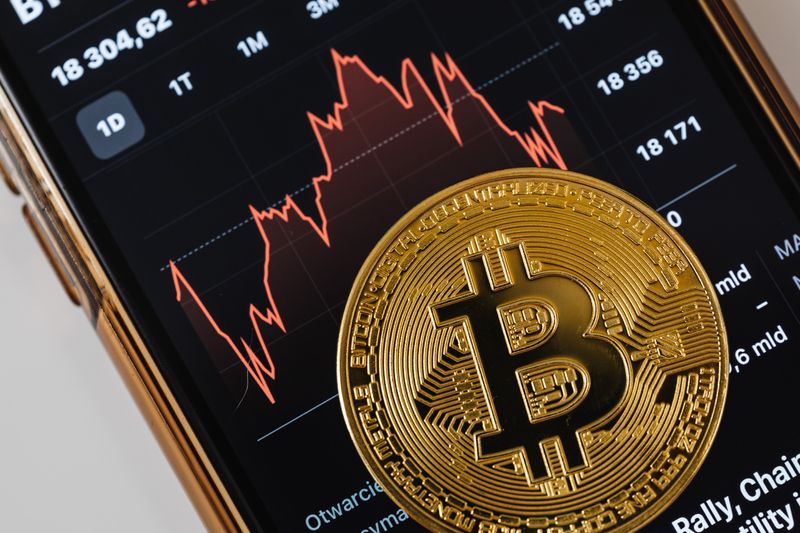Federal Court Rules Ripple‘s XRP Token Can Be Treated as a Security, with Some Exceptions
Ruling Overview
In a recent ruling from the U.S. District Court of the Southern District of New York, Judge Analisa Torres provided a nuanced view on whether Ripple‘s XRP token should be treated as a security under U.S. securities law. After evaluating various sales methods of the XRP token and applying the Howey Test, the judge ruled that XRP can be considered a security when it is used for institutional sales. However, she denied the U.S. Securities and Exchange Commission’s (SEC) request for summary judgment in relation to programmatic sales of XRP and other circumstances, including sales by Ripple‘s former and current leaders. This means that XRP is not deemed a security when sold to the broader public.
Implications and Reactions
The ruling has created a double-edged sword situation for Ripple Labs and XRP. While the institutional sales of XRP will now fall under securities laws, the broader public will be able to trade XRP without the same regulatory scrutiny. The crypto community has generally reacted positively to the ruling, likely because most retail investors fall into the non-security category.
The value of XRP experienced a significant increase of 28% following the ruling. One possible explanation for this is that the legal risk to XRP and Ripple Labs may be perceived as less than previously feared. Alternatively, even a partial win for XRP may have exceeded investors’ expectations, leading to increased profitability.
Background and Context
The SEC’s case against Ripple Labs dates back to December 2020 when the agency sued the company and its executives, Brad Garlinghouse and Chris Larsen, on allegations of conducting an “unregistered, ongoing digital asset securities offering” that raised $1.3 billion. The latest ruling from the U.S. District Court marks a significant milestone in the ongoing legal battle between Ripple Labs and the SEC.
It is important to note that the SEC has been actively pursuing enforcement actions against entities it deems to have violated U.S. securities law, both domestically and internationally. This recent ruling indicates that there are other agencies outside of the SEC that also consider certain activities in the crypto market as illegal, albeit with a narrower scope than the SEC.
Editorial: The Nuances of Regulatory Challenges in the Crypto Market
The Complexities of Applying Traditional Securities Law
The recent ruling on Ripple‘s XRP token highlights the challenges regulators and courts face when applying traditional securities laws to the rapidly evolving and complex world of cryptocurrencies. The Howey Test, which is used to determine whether an investment qualifies as a security, was developed decades ago and may not always neatly apply to digital assets.
Cryptocurrencies like Bitcoin and Ethereum have established themselves as decentralized and utility-based networks that do not fit neatly into existing regulatory frameworks. However, in the case of Ripple and XRP, the court’s ruling suggests that certain sales of the token exhibit characteristics that align with traditional securities.
The Double-Edged Sword of Regulatory Clarity
While regulatory clarity is often seen as a positive development for the crypto market, the recent ruling on XRP demonstrates the potential challenges and contradictions that can arise. The ruling delineates the treatment of XRP in different sales contexts, leading to a situation where it is deemed a security for institutional sales but not for public sales.
This distinction raises questions about consistency in regulatory enforcement and how it may impact market participants. Cryptocurrency projects and investors require a clear and predictable regulatory environment to operate effectively. The current ruling introduces a level of ambiguity that may lead to confusion and hinder the growth of the crypto market.
Advice for Market Participants
Seek Legal Guidance
Given the complex and evolving nature of cryptocurrency regulations, market participants should seek legal guidance to navigate the intricacies of compliance. The ruling on XRP reinforces the importance of understanding how specific digital assets may be categorized under securities laws, as this classification can have significant implications for market participants.
Monitor Regulatory Developments
Market participants should closely monitor regulatory developments both within the SEC and other regulatory bodies. The recent ruling from the U.S. District Court of the Southern District of New York highlights that multiple agencies may have differing interpretations of the legality of certain crypto activities. Staying informed about these developments is crucial for understanding compliance requirements and potential legal risks.
Advocate for Regulatory Clarity
The complexities and contradictions surrounding cryptocurrency regulations call for increased advocacy for clear and forward-thinking regulatory frameworks. Industry participants, regulators, and policymakers should engage in dialogues aimed at bridging the gap between traditional securities laws and the novel characteristics of digital assets. Transparency and collaboration are essential for fostering a healthy regulatory environment that can effectively protect investors while promoting innovation in the crypto market.
In conclusion, the recent court ruling on Ripple‘s XRP token underscores the challenges of applying traditional securities laws in the crypto market. The nuanced decision highlights the need for comprehensive regulatory frameworks that can keep pace with the evolving landscape of digital assets. Market participants should proceed with caution, seek legal advice, and actively support efforts to achieve regulatory clarity in the crypto space.

<< photo by Andrea Imre >>
The image is for illustrative purposes only and does not depict the actual situation.
You might want to read !
- Emerging Star Mason Mount Shines Bright in Manchester United’s Preseason Triumph
- Toffolo Faces Numerous FA Charges for 375 Betting Rule Violations
- Ben Wallace’s Alleged Rebuke: A Closer Look at Criticizing Ukraine’s Demands
- Ripple’s Legal Triumph Sends XRP Coin Soaring
- “Leslie Van Houten’s Release: Manson Cult Follower’s Controversial Freedom Examined”
- Exploring the Diverse Mustelid Species and Their UK Habitats
- “Exploring How to Stream the Genesis Scottish Open Live: A Guide to Watching the Exciting Action”
- Russian Teenager Mirra Andreeva Shines Bright at Wimbledon: A Rising Star in the Making
- Manchester United Welcomes Danish Striker Rasmus Hojlund to Bolster Forward Line




